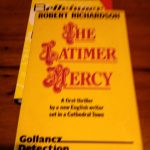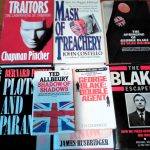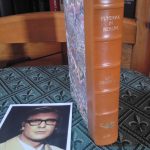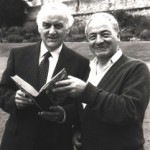 Richard Ford (born 1944 in Jackson, Mississippi) is no stranger to British readers, he has visited and done readings since he became known with The Sportswriter (1986) and the sequel, Independence Day (1995). The latter received both the Pulitzer Prize and the PEN/Faulkner Award, these being widely regarded on the literary circuit as modern classics; describing in detail the central characters tribulations and search for happiness. Yet,the “Dirty Realism” Granta author and friend of the late great short story writer Raymond Carver – is also at times the oracle of landscape, the malady of up-rootedness and burning desires – taking in subject-matter found in say the powerful crime novels of James Lee Burke.
Richard Ford (born 1944 in Jackson, Mississippi) is no stranger to British readers, he has visited and done readings since he became known with The Sportswriter (1986) and the sequel, Independence Day (1995). The latter received both the Pulitzer Prize and the PEN/Faulkner Award, these being widely regarded on the literary circuit as modern classics; describing in detail the central characters tribulations and search for happiness. Yet,the “Dirty Realism” Granta author and friend of the late great short story writer Raymond Carver – is also at times the oracle of landscape, the malady of up-rootedness and burning desires – taking in subject-matter found in say the powerful crime novels of James Lee Burke.
The books before The Sportswriter were exploratory as Ford was finding his way, and he had come a long way. His mother and father had got together in the Depression. The father’s family had come from Ireland in the 1870s and were Protestants, the mother’s folks were Indians and Edna was born in outlaw country in Arkansas, and later brought up as a “secret Catholic”. Ford’s father died in 1962 and he agreed with mom that he was try to stay out of jail and find the right friends. Mom found life hard and although she made new friends illness and pain dragged her down. Richard prepared for her departure before he had made a life for herself. This background from My Mother, in Memory (1988) is poignant.
Ford’s prose is exact, spare and honest. The first two novels he wrote are tough, dark stories with comic sides, taking in violence, love and jealousy. A Piece of My Heart (1976) is set in the open spaces of Mississippi. It begins with a mysterious murder, two men vie for the attentions of a woman, and what follows is a brutal and explosive finale. The dialogue is tight and realistic, you feel the 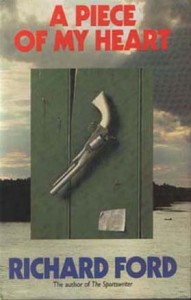 raw emotions. Was is it the stuff of a good crime thriller? Then came The Ultimate Good Luck (1981 in the US, but not until 1989 in the UK). Not Mississippi this time, but across the border in bandit country. Harry Quinn (an Irish name) takes a young girl called Renata as his lover, and then becomes involved in a plot to get her brother out of jail. Evocative with guns,drug trafficking, amorality and a creeping scorpion it can easily be a south of the border crime novel by James Crumley, or even a Robert Stone pseudo crime novel. Stanley Elkins called it “a grand Maltese Falcon of a novel”. With the recently acclaimed new novel, Canada (2012) we find another vast open place, where people settle but don’t belong. The opening lines again portend a crime story: “First I’ll tell about the robbery our parents committed. Then about the murders, which happened later.”
raw emotions. Was is it the stuff of a good crime thriller? Then came The Ultimate Good Luck (1981 in the US, but not until 1989 in the UK). Not Mississippi this time, but across the border in bandit country. Harry Quinn (an Irish name) takes a young girl called Renata as his lover, and then becomes involved in a plot to get her brother out of jail. Evocative with guns,drug trafficking, amorality and a creeping scorpion it can easily be a south of the border crime novel by James Crumley, or even a Robert Stone pseudo crime novel. Stanley Elkins called it “a grand Maltese Falcon of a novel”. With the recently acclaimed new novel, Canada (2012) we find another vast open place, where people settle but don’t belong. The opening lines again portend a crime story: “First I’ll tell about the robbery our parents committed. Then about the murders, which happened later.”
I was lucky to discover Richard Ford early, and met him when he toured England in 1988. He signed several of my books and was one of the authors that I sought out. I remember in a reading how he spoke the words that he had written – with care and precision. A gracious, kindly man, yet his upbringing was difficult and glimpses of this comes through in his elegant novels. Are the early ones crime fiction or books about people mixed up in wrong-doing? One can observe that American literature outside of academe and metroland is to do with violence, preservation, a kind of passage of rights. This tradition crosses genres, and is probably where today’s crime writers such as James Lee Burke find some affinity with writers such as Ford.


